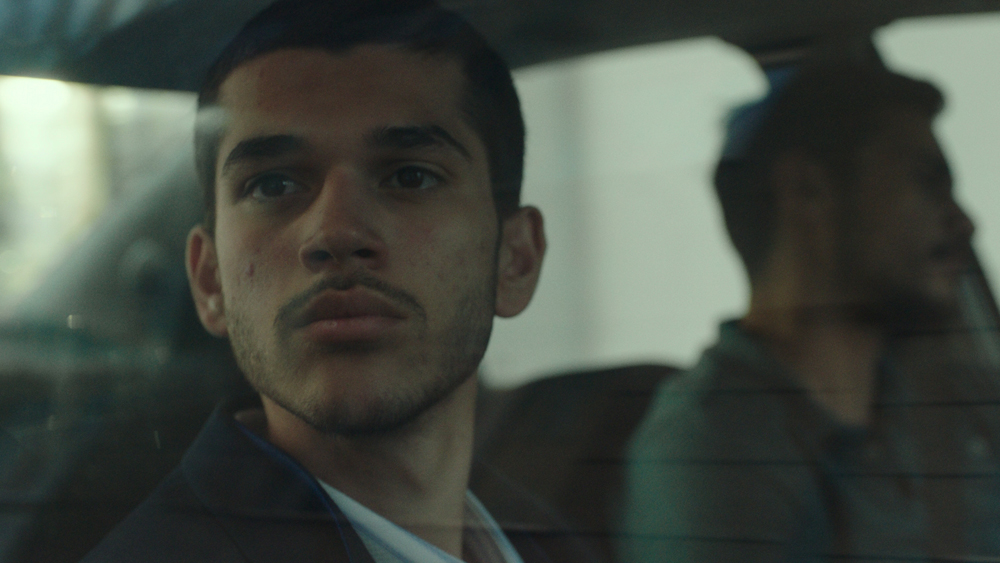Karlovy Vary Film Review: ‘Brothers’
By Guy Lodge
LOS ANGELES (Variety.com) – The title is well-worn, as is pretty much everything else — save for the fresh face of young, compelling lead Yiğit Ege Yazar — in “Brothers,” Turkish writer-director Ömür Atay’s cautious but finely buffed debut feature. Following a reticent teenager as he’s released from juvenile detention into a fraught, not fully welcoming family environment, Atay’s film combines familiar beats from sundry coming-of-age and life-on-the-outside dramas, though it does so with sensitivity and crisp sensory detail. Where it stumbles is in fashioning itself as a mystery of sorts, withholding the story behind the protagonist’s incarceration well past the point where it will have become obvious to most culturally attuned viewers.
Nevertheless, the topicality of that reveal — flipping the perspective of such works as Daniel Wolfe’s “Catch Me Daddy” — combined with the confident formal polish of Atay’s filmmaking should secure “” a long run of festival berths following its premiere in the Karlovy Vary competition. It promises more ambitious work to come from the helmer, who may be new to feature-length storytelling but is far from a greenhorn, after 20 years working in short film (including a segment in the festival-traveled 2005 portmanteau “Istanbul Tales”) and television. That experience is evident in the unflashy assurance of his compositions and his firm hand with young actors; as a novice screenwriter, however, he’s on slightly shakier ground.
Where the script falters, at least, Yazar’s quiet, potently expressive screen presence fills in some of the blanks. From the moment we lay eyes on his character Yusuf, stoically serving out the final days of a four-year sentence in juvie, he’s a human crockpot of compressed feeling; his deliberate movements and surly, sad-eyed demeanor bespeak a stunted adolescence vaulted straight into wounded adulthood. For reasons that gradually become clear if not forgivable, his family has barely visited or contacted him in this time. When his older brother Ramazan (Caner Şahin), himself recently discharged from the military, picks Yusuf up upon his release, their reunion is a strained, tentative one, marred not just by the distance of time but shared guilt over the crime that landed the boy — not quite justly, as it turns out — behind bars.
Rather than return to the family home, where his reclusive mother treats him with a ghostly, gaze-avoiding chill, Yusuf camps out at the family business, a gas station and adjacent motel on a barren stretch of highway near the Iranian border — a location evocatively shot by cinematographer A. Emre Tanyildiz as simply another, more spacious prison, with scarlet neon signage and truck-rustled dust clouds fading out into nowhere. It looks like no place for a new start: Indeed, when he narrowly escapes arrest after Ramazan thoughtlessly hires the underage kid a prostitute, it’s a sign that his life is likelier to move backwards than forward from this familial purgatory.
Limbo is a difficult state to dramatize, however, and “Brothers” palls a little as Yusuf moodily fights his surroundings, reaching occasional crescendos of melodrama as the brothers have it out over their ugly past. Too much of Atay’s screenplay is built around slowly unfurling dark information that isn’t a secret to any of the characters, and that viewers should swiftly guess from the first scattered hints. Getting the truth out in the open earlier on, and watching the family more candidly wrestle with its consequences, might have made for a fuller, richer tragedy, though “Brothers” remains touching in its study of fraternal betrayal and troubled reconciliation. Yazar and Şahin share a natural physical rapport that makes the thin air of passive aggression between them all the more credible.
Working in a sprawling widescreen format, Atay and Tanyildiz tighten and suffocate the dramatic space where necessary with judicious use of shallow focus, and pick out their visual symbols with blunt but effective clarity. The hellish red glow of the gas station is a constant echo of the flashing emergency lights that open the film; the crisis that haunts the brothers is never quite escapable. “I sometimes think of leaving it all behind,” Ramazan confesses to a sympathetic female acquaintance. “If you talk like that, you can never go anywhere,” she replies. “Brothers,” as it moves in sorrowful circles of its own, feels that rub.

